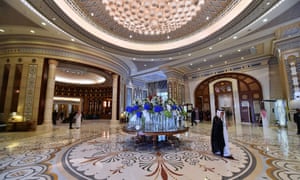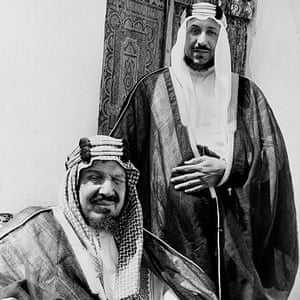what can you expect for nassau county politicians who aspire to be taxpayer funded rich
Outside a Riyadh shopping centre last month, Zeina Farhan was walking with her headscarf around her shoulders when the religious police pulled up. She froze in fear as a man in the driver’s seat lowered his window. “Please madam, can you just cover your hair during prayer time,” he asked. “I said OK, he said thank you, and he drove off. That was it. It was stunning.”
For all of her adult life, a run-in with the feared enforcers of Saudi Arabia’s societal norms would have led to a much harsher outcome. A woman who dared uncover her hair in public at any time, let alone during prayer, probably would have faced a fine and maybe jail. “Insults, prisons, whippings, shame,” said Farhan, 32. “To see them like that showed how much things have changed.”
The religious police, the bane of many Saudi women’s lives, have been steadily stripped of their roles over the past year, losing powers to arrest and to define what is right or wrong. Last week, a decree was signed to absorb them into the interior ministry – a death knell for an organisation central to generations of social and religious austerity in a kingdom resistant to change.
Most of what was known about the opaque kingdom has in the past six heady months been thrown out and steadily replaced by a series of reforms that are upending all aspects of Saudi society. A transformation started by the new Saudi leadership of King Salman and his son and heir, Prince Mohammed bin Salman, has already shaken most corners of the country; on Saturday it reached the previously untouchable ultra-elite, when 30 senior royals were arrested on graft charges.
“To say that was a shock to the system is an understatement,” said a senior Saudi official. “This was a message to the people here and to the world that we are open for business, but on your terms, not ours. Investors need to have confidence that they can come here and do business transparently.”
As the royals and scores of other prominent citizens remain detained in one of Riyadh’s most opulent hotels, the Ritz Carlton, Saudi citizens were on Monday trying to make sense of what marks a profound departure from the way rulers have done business throughout the modern history of the kingdom.
“He is shredding a moribund system that had favoured the royals above all else,” said a senior Saudi businessman. “He is shattering the accommodation that had existed between the elite and the state. They were one and the same. This is at least partly about creating citizens from subjects.”
In a country long governed by conferring and consensus – especially among the tribes of the various branches of the founding monarch, Abdulaziz – the arrest of the royals alone goes straight to the heart of a new form of governance. Add to that the cultural reforms that next year will allow women to drive and enter sports stadiums, for concerts to be held, and tourists to visit archeological sites that pre-date the Islamic era.
“The message is that everything that used to be Saudi Arabia is no longer the case,” said a senior minister, who like all other officials refused to put his name to his views. “This is a revolution,” he explained. “Everything is so sensitive. We must be patient until it all settles down.”
Underpinning the cultural reforms is Prince Mohammed’s pledge last month to “return Saudi Arabia to moderate Islam”, in effect a commitment to break the founding alliance between clerics who adhere to the rigid teachings of 17th century preacher Muhammad ibn Abd-al-Wahhab and the kingdom’s modern rulers.
The crown prince said a hardline interpretation of Islam had taken root in Saudi Arabia after the Islamic Revolution in Iran in 1979. “We didn’t know how to deal with it,” Prince Mohammed told the Guardian. “And the problem spread all over the world. Now is the time to get rid of it.”
No Saudi leader has previously come close to confronting the accommodation between clerics and rulers.
Dr HA Hellyer, senior non-resident fellow at the Atlantic Council, said the sharp change in rhetoric did not necessarily mean that the new Saudi leadership was disavowing Wahhabism.
“A change of philosophical levels, where the Saudi religious establishment is no longer Wahhabi? That would be a monumental shift, and I’m not sure MBS [Prince Mohammed] is all that interested in taking that up.
“If we were to expect a non-conservative religious approach to take root in Saudi, I think we’re daydreaming,” he said. “But the question is how much such a society can genuinely revert to a more normative religious outlook – especially over a short period of time. The approach thus far seems to be about restraining the more radical impulses, rather than getting into the root of where that comes from. 1979 is crucial in understanding how the Saudi state was restricting or loosening the amount of space the religious establishment had – not in terms of the religious basis of that establishment.”
Several members of Saudi’s business elite, with regular access to Prince Mohammed, disagreed. “He is positioning himself as leader of the Sunni world,” said one senior figure. “And the only way he can do that is if he publicly and strongly acknowledges that we lost our way as a society.”
A second veteran business leader said: “The only way that this could take place – change of this scale – was if there was a young leader who had the patience. Every Saudi leader before him has been 70 or 80 years old when they took the throne and they have not had the capacity to attempt anything like this.
“Yes, you can say that people are too afraid to talk, because power is so centralised now. But he is doing what he has to do. He is consolidating his power as anyone must in this situation. There will always be casualties.”
Prince Mohammed’s critics say his headlong rush to revolutionise is driven by a push for unprecedented power, which the 32-year-old can leverage over many decades as monarch. Among those arrested are family rivals who are opposed to many aspects of the reforms. “How can you get away with something like this?” asked a relative of one of the arrested princes. “Don’t mistake people’s silence for consent.”
In the same hotel as the arrested royals, highly paid consultants from Boston Consulting Group, McKinsey and Deloitte have been drafting plans to overhaul an economy that has been anchored by patronage networks, which have often required foreign companies to partner with a royal to start any venture. A sclerotic public sector has made the going tough for investors and locals alike, and the economic reforms are seen as essential to winning the backing of a sceptical – and conservative – base, many of whom are unsettled by such change.
“This is change management and shock tactics rolled up as one,” said the senior minister. “People will get used to it. They have to.”
Additional reporting: Nadia al-Faour
Since you’re here …
… we have a small favour to ask. More people are reading the Guardian than ever but advertising revenues across the media are falling fast. And unlike many news organisations, we haven’t put up a paywall – we want to keep our journalism as open as we can. So you can see why we need to ask for your help. The Guardian’s independent, investigative journalism takes a lot of time, money and hard work to produce. But we do it because we believe our perspective matters – because it might well be your perspective, too.


No comments:
Post a Comment